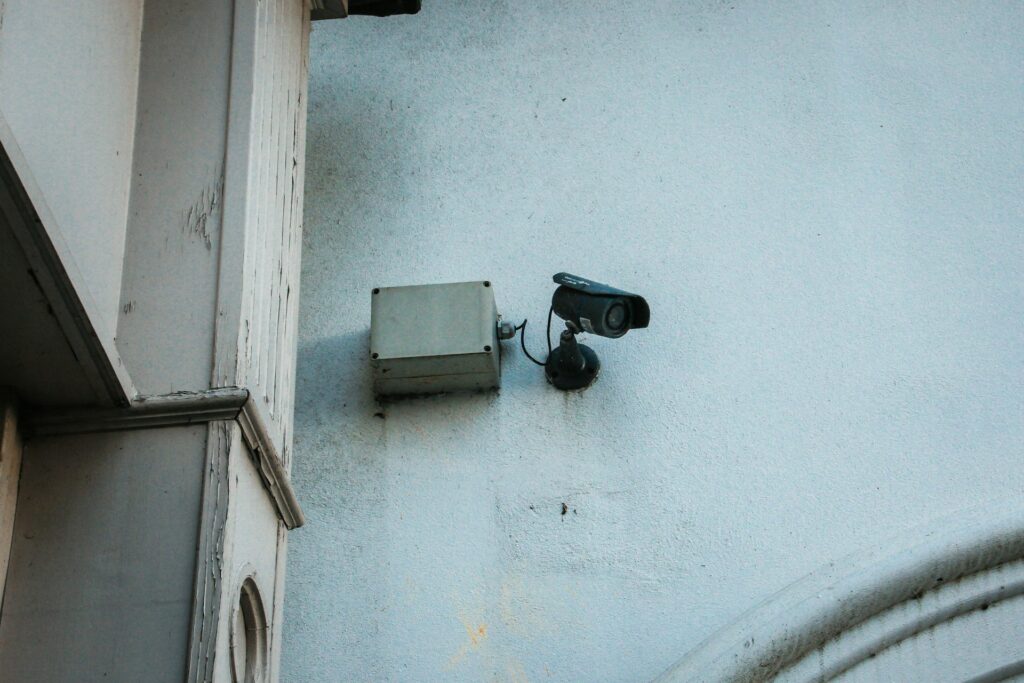In the year 2025 how can you safeguard your privacy on the internet?

In the year 2025 how can you safeguard your privacy on the internet?
The Increasing Significance of Protecting Privacy on the Internet
In the year 2025, the protection of internet privacy has taken on an unprecedented level of significance. As people become more dependent on digital platforms for their employment, communication, and leisure, the personal information they provide faces a never-ending threat of being followed, sold, or stolen. In today’s world, preserving your digital identity is no longer a choice but rather an absolute must. This is essential in order to protect yourself from a wide range of threats, from large-scale data breaches to highly targeted advertising. In order to maintain your financial security, mental well-being, and personal freedom, it is imperative that you take steps to secure your digital identity.
Gaining an Understanding of the Contemporary Privacy Landscape
Advanced monitoring technology, artificial intelligence, and more stringent government laws are all factors that have contributed to shaping the digital world we live in today. Businesses are constantly discovering new methods of collecting and monetizing data, despite the fact that new privacy regulations have been put in place in a number of locations in an effort to safeguard individuals. Cybercriminals are simultaneously exploiting vulnerabilities by using assaults that are powered by artificial intelligence. What this implies is that people need to be proactive when it comes to protecting their privacy rather than depending only on protections from other sources.
Passwords and Passkeys That Are Difficult to Crack
Even though passwords are still the primary line of security against illegal access, the industry is turning toward passkeys in 2025. Passkeys are cryptographic keys that will replace standard passwords in the future. They are more difficult to steal, simpler to use, and less susceptible to phishing assaults. In order to reduce the possibility of reusing the same password on various accounts, if you continue to depend on passwords, you must be certain that they are lengthy, completely unique, and saved in a password manager that you trust.
Multi-Factor Authentication (MFA)
Multi-factor authentication (MFA) is very necessary due to the fact that it is possible for even the most secure passwords to be hacked. As supplementary ways of authentication, biometric technologies like fingerprint and face recognition are gaining popularity in the year 2025. Even if attackers know your password, they will not be able to log in without permission if you have extra levels of protection in place, such as physical security keys or authenticator software.
Making Your Devices Safe and Secure
Your personal information is accessible via any of the devices you own, whether they are your tablet, your laptop, or your smartphone. It is really important to ensure that they remain safe. Make sure that you always install the most recent software updates, use full-disk encryption, and utilize biometric locks wherever possible. Because they compromise the integrity of the built-in security measures, jailbreaking and rooting of devices should be avoided. To further reduce the risk of data contamination, you may want to think about keeping your business devices apart from your personal devices.
Employing Privacy Tools for Safe Browsing
Web browsers are one of the most often used sources of data collecting. In order to minimize the amount of tracking that is done:
- Make use of browsers that prioritize privacy, such as Firefox or Brave.
- Turn on the Do Not Track features and turn off cookies from third parties.
- Make sure you install trustworthy privacy addons that prevent advertisements and trackers from appearing.
- Whenever it is essential, you should either utilize private browsing sessions or regularly wipe your browser records.
- Additionally, there are a number of users in 2025 who depend on decentralized browsers, which provide enhanced privacy by default since they do not save personal information on central servers.
Virtual Private Networks (VPNs) and Other Technologies
One of the ways that a virtual private network (VPN) protects your online activity is by encrypting your internet traffic and masking your IP address, which makes it more difficult for marketers, governments, or hackers to trace your online activity. Nevertheless, privacy-conscious customers are also investigating decentralized virtual private networks (dVPNs) in 2025. dVPNs disperse connections throughout a distributed network instead than relying on a single provider. This makes it possible to increase anonymity while also decreasing dependence on a single corporation.
Safeguarding Privacy on Social Networks
Social media sites continue to be among the biggest collectors of personal information. In order to protect yourself:
- Avoid making specifics about your personal life public knowledge.
- You may limit the number of people who can see the content that you submit by modifying your privacy settings.
- Make it a habit to do regular audits of the lists of people you follow or are friends with.
- while it comes to social media accounts, exercise caution while using third-party applications that are linked to them.
- A large number of users are opting to join social networking sites that put privacy first and prioritize user control and minimum data collecting in the year 2025.
Privacy When Using Email and Messaging Services
Messaging applications often gather metadata, and electronic mail is a significant target for phishing assaults. You may protect yourself by taking the following precautions:
- Using email providers that provide encryption, such as Proton Mail.
- Favoring messaging applications that use end-to-end encryption, such as Signal
- Maintaining a suspicious attitude toward links or attachments that are not requested
- Staying away from extensions or plugins that have not been validated and that communicate with your email client.
- End-to-end encryption guarantees that the material is only accessible to you and the intended recipient, even in the event that the service provider’s security is compromised.
Taking Charge of Your Digital Footprint
Each and every activity that takes place on the internet generates a trail of data. In order to keep exposure to a minimum:
- When registering for anything, you should make use of temporary or disposable email addresses.
- Make it a habit to go through and remove any accounts that are not being utilized.
- Examine the personal information about you that is accessible to the general public, and, if at all feasible, request that it be taken down.
- It is advisable to make use of services that do scans for leaked credentials and provide you with notifications if your data is discovered in breaches.
- You may decrease the amount of personal information that is accessible to both advertising and thieves by being purposeful in the way you manage your digital footprint.
Devices for Smart Homes and the Internet of Things
The issue of privacy now extends into the house with the increasing popularity of smart speakers, cameras, and appliances that are linked to the internet. In order to maintain your safety:
- It is recommended that the default passwords for all Internet of Things (IoT) devices be changed.
- Make sure that you update the firmware on a regular basis.
- You should make sure that all of your smart gadgets are connected to a different Wi-Fi network than the one that your primary devices are using.
- When you are not using the microphones or cameras, you should make sure that they are turned off.
- There is a lower chance that hackers will be able to take advantage of vulnerabilities in devices that are linked to the internet if these procedures are followed.
Artificial intelligence, deepfakes, and potential threats to privacy
Artificial intelligence (AI) is expected to introduce new dangers in 2025, including phishing scams that are created by AI and frauds with deepfakes. In order to mitigate these dangers:
- When you get video or audio communications that seem to be questionable, you should exercise caution.
- Requests for sensitive information should be verified via a variety of different ways.
- In order to be able to identify fraudulent methods powered by artificial intelligence (AI) at an early stage, it is important to keep yourself up to date on the latest trends in this kind of fraud.
- When it comes to protecting yourself from fraud that is fueled by artificial intelligence, your greatest protection is to be skeptical and aware.
Regulations concerning privacy and legal rights
Laws regarding privacy are always changing. Depending on the location of your residence, you may have the ability to access, delete, or limit the use of your personal information. Make sure that you are well-versed on local privacy rules like the General Data Protection Regulation (GDPR) in the European Union, the California Privacy Rights Act (CPRA) in California, or the new privacy frameworks that are being developed throughout the world for 2025. When you are aware of your rights, you are better equipped to hold businesses responsible when they mishandle your personal information.
Constructing a Mindset That Prioritizes Privacy
You cannot rely on technology alone to protect your privacy. It is equally crucial to cultivate attentive internet habits. Before you go ahead and disseminate any information, be sure to question yourself if it is really essential to do so. Treat every platform and application with care, expect that the majority of online activity is being recorded, and take conscious efforts to restrict exposure.
Maintaining your online privacy in the year 2025 will need a combination of sophisticated technologies, sensible behaviors, and an unwavering vigilance. Each person has the obligation of protecting their own digital presence, which includes taking measures such as adopting passkeys and encrypted communications, as well as safeguarding IoT devices and spotting frauds that are powered by artificial intelligence (AI). You can manage your personal information and take use of the advantages of the digital world without compromising your privacy if you keep yourself informed and take initiative.




